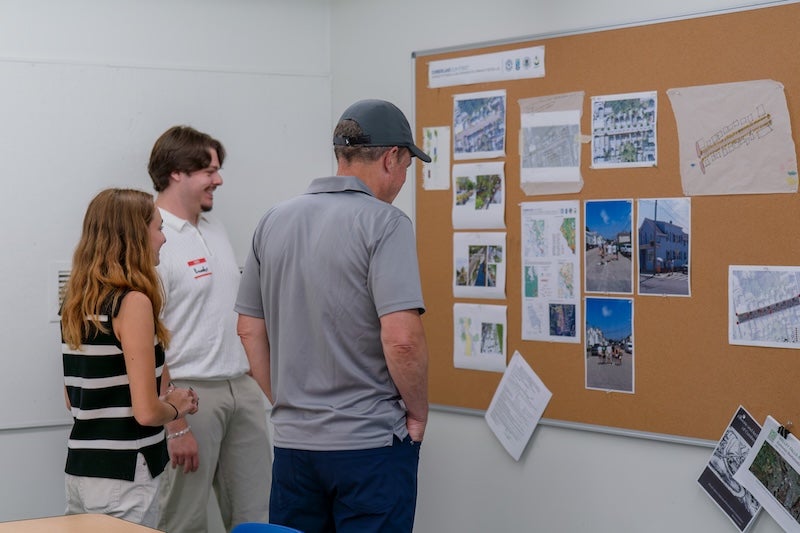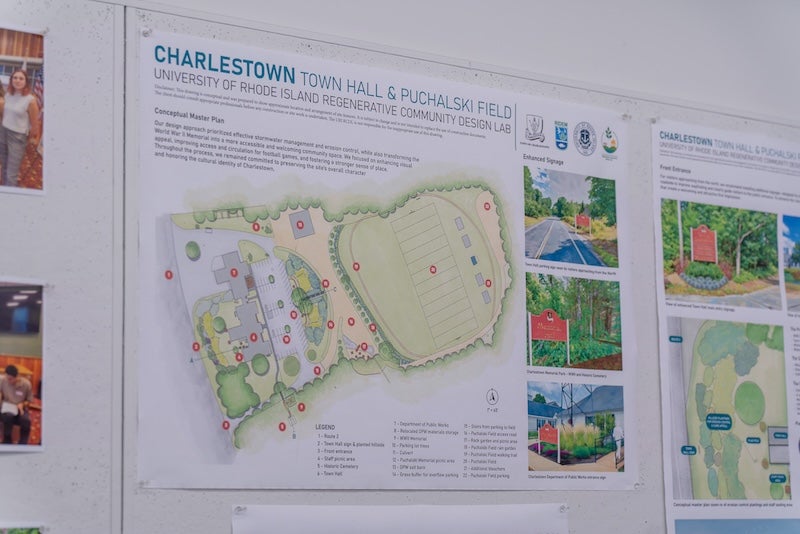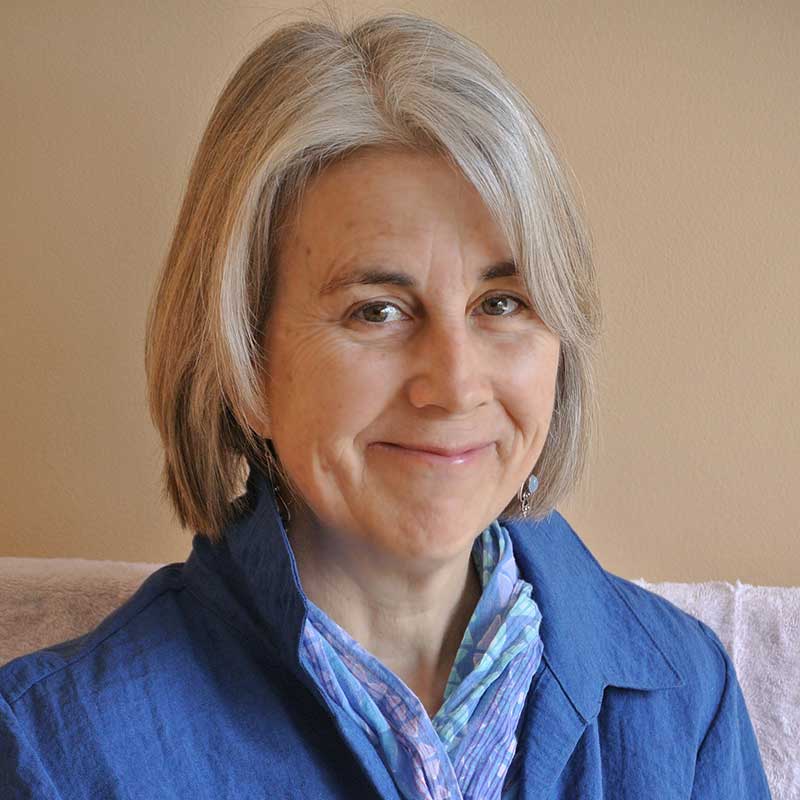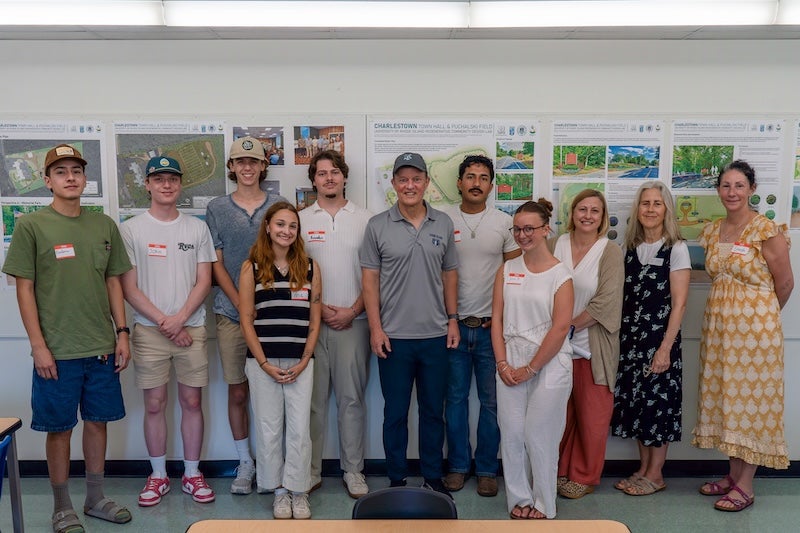URI’s engagement with the larger Rhode Island community ensures that students and faculty work with local, city, and state agencies. One example is the partnership between the University’s Regenerative Community Design Lab (RCDL) and the RI Department of Environmental Management Division of Forest Environment’s Urban and Community Forestry Program. The aim of the program and collaboration is to reimagine community green spaces with nature-based solutions, promoting the health and well-being of both local ecological systems and the residents that engage with them.
“The Regenerative Community Design Lab (RCDL) at the University of Rhode Island brings this work directly into Rhode Island communities,” says Jane Buxton, associate teaching professor of Landscape Architecture and program director of the RCDL. “Through partnerships with Rhode Island towns, the lab supports the planning of green infrastructure that enhances community well-being, from tree-lined streets and pocket parks to sustainable, nature-based strategies for managing stormwater and reducing flood risk.” Mia Jenkins, of North Kingstown and Brandon Howard, of Concord, Massachusetts, are busy in the lab this summer as part of their CELS Summer Research Fellowships with the RCDL.

Jenkins and Howard, who are both majoring in landscape architecture, are part of a team working closely with the Rhode Island towns of Charlestown, Cumberland, and Providence, three municipalities that were selected for design assistance through the Urban and Community Forestry Grant Program. “We’re collaborating with these towns to reimagine public spaces in ways that promote connection, accessibility, and sustainability,” Jenkins says, noting that her daily work includes site analysis, sketching design concepts, researching best practices, and preparing materials that are shared among community stakeholders. Howard’s fellowship work includes researching the sites, participating in site visits, and working with the team to develop and share redesign concepts. “During the times I meet with my group, we discuss solutions that best benefit the site we are working on,” he says. “After we collectively agree on a design, we start to work on our poster boards that accurately represent our design in a clear and concise way.”
Jenkins, who is also minoring in community planning, says that the fellowship has brought her coursework to life. “Concepts like technical drawings, site planning, and sustainable design are now things I get to practice every day,” she says. “I’ve been able to connect classroom knowledge with real-world impact, and it’s helped me think more critically and compassionately about how spaces serve people.”
“Landscape architecture plays a vital role in shaping healthy, resilient, and beautiful communities,” Buxton says. “It goes far beyond planting trees or designing parks, it’s about how we use land wisely, protect natural resources, and create places that improve people’s daily lives. Landscape architects design with nature in mind, tackling complex challenges such as climate change, stormwater management, public health, and equitable access to green spaces.”
Buxton also shares how the design lab offers learning opportunities in a collaborative environment: “The lab offers technical expertise, creative vision, and a collaborative process that gives residents a voice in shaping their environment. It also serves as a learning lab for students, preparing the next generation of professionals to lead with purpose, equity, and environmental stewardship. At its core, this work helps communities imagine what’s possible and provides the tools to make it real.”

Reflecting on the fellowship so far, Jenkins says that one of the most rewarding moments was completing the redesign of Charlestown’s Town Hall area, including addressing stormwater challenges while creating a more welcoming space for the town’s residents. “Seeing how our design contributes to both environmental resilience and community pride was incredibly meaningful,” she says.
“Some highlights of my experience have been presenting to a town council in a very professional setting, learning about the history of local areas, working with a team to achieve goals that properly address the town’s needs, and sharpening my design and technical skills within the assortment of digital programs we use,” Howard adds.
“I’m especially excited to see how our concepts for Cumberland and Providence evolve with community input,” says Jenkins. “I love the collaborative aspect of this work. In learning what matters to residents, we’re able to translate that into tangible design strategies. I’m also looking forward to honing my technical skills while deepening my understanding of how landscape architecture can support equity and wellbeing.” Howard adds, “I’m looking forward to continuing to work with such an amazing team and creating great solutions that will have a massive positive impact on communities that need help.”

As for students looking to explore learning opportunities outside the classroom, Jenkins suggests staying open to expected paths. She says she has enjoyed learning from courses like LAR 201 Survey of Landscape Architecture that centered on topics like fundamental design principles, environmental systems, and visual communication, all of which she says shaped the way that she has approached her fellowship work. “Each class has built a foundation for understanding both the art and science behind thoughtful space-making,” she says.
Jenkins and Howard emphasize the importance of opportunities like the CELS Summer Research Fellowship for students looking to explore work outside of the classroom. “Fellowships like this provide so much career and personal growth, not just for my resume, but for discovering the kind of work that gives me purpose,” Jenkins says.
Written by Yvonne Wingard, CELS Communications Fellow

